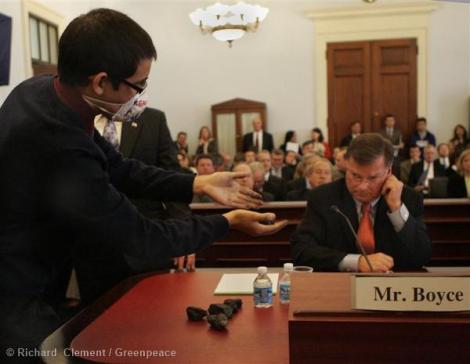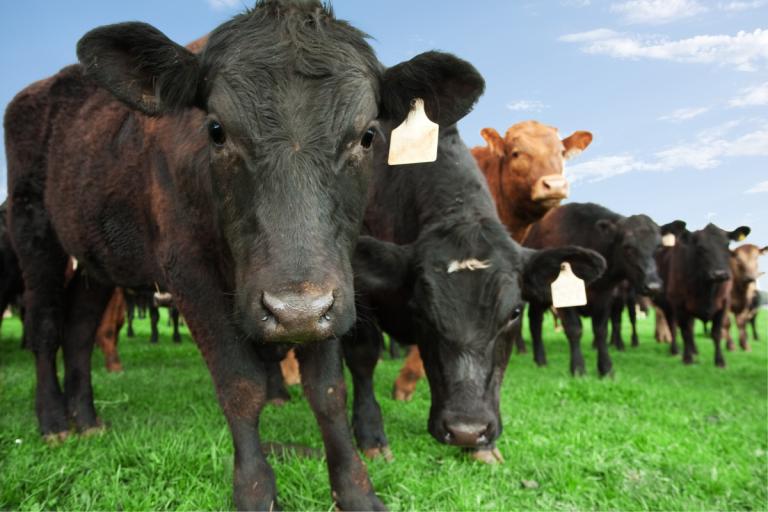Students at Washington University in St. Louis are in day three of a sit in to protest their University’s relationship with Peabody Energy, the world’s largest private sector coal company. Caroline Burney, a Senior at Washington University, explains in Why we’re sitting in at WashU (And we’re not leaving):
In St. Louis, Peabody ingratiates itself to the local community by posing as a benefactor of the arts, charitable corporate ‘citizen,’ and hero tackling “energy poverty.” It all sounds pretty good until you realize that Peabody Energy is the world’s largest private sector coal corporation whose business model propagates climate change and destroys communities. Peabody’s list of crimes is a veritable laundry list of social and environmental injustices: the destruction of mountains in West Virginia, the forced relocation of Navajo and Hopi Indian tribes in Black Mesa, Arizona, being a major supporter of the American Legislative Exchange Council (ALEC), which have been strong advocates of controversial legislation like “Stand Your Ground” laws, the destruction of Rocky Branch, Illinois through aggressive mining and logging, and the distortion of democracy here in St. Louis by striking down a city-wide ballot initiative.
Peabody’s size means that its coal mining impacts many different communities – I touched on some of those in Peabody Energy: cheating workers and taxpayers to destroy our climate, focused mostly on Peabody’s strip mines in Wyoming and coal export plans, as well as the company’s efforts to cheat its former coal miners out of the health care they were promised. The Washington University students’ protest highlights other communities that also face disruption and pollution from Peabody’s operations, including in Black Mesa, Arizona and Rocky Branch, Illinois. To learn more about those communities, check out this powerful video about efforts by the Black Mesa Water Coalition to protect groundwater from Peabody’s mining operations, and collaboration with other communities and environmental justice leaders through the Our Power Campaign.
And the video below tells the story of one of the women standing up to Peabody’s coal mine expansion plans in Southern Illinois – Jeff Biggers has chronicled the community organizing, blockades, and other efforts, so check out his coverage to learn more.
Of course, the damage from Peabody’s coal extraction extends well beyond the communities impacted directly by its mining operations; it’s among the 90 companies and government entities that have extracted the fossil fuels responsible for most of the greenhouse gases that are driving climate change. Worse, the company remains explicitly committed to extracting all the coal it can, despite clear warnings from the International Energy Agency, Intergovernmental Panel on Climate Change, and more that most fossil fuel reserves – especially coal – must be left in the ground. A Peabody executive even told the New York Times: “We have trillions of tons of coal resources in the world. You can expect the world to use them all” – given the science, that’s a fairly explicit condemnation of young people everywhere.
Follow the Washington University students’ sit in against Peabody on their website, http://studentsagainstpeabody.org/ and on Twitter: @WUStopPeabody and #StudentsAgainstPeabody

Youth confront Peabody CEO Greg Boyce at a 2010 congressional hearing


